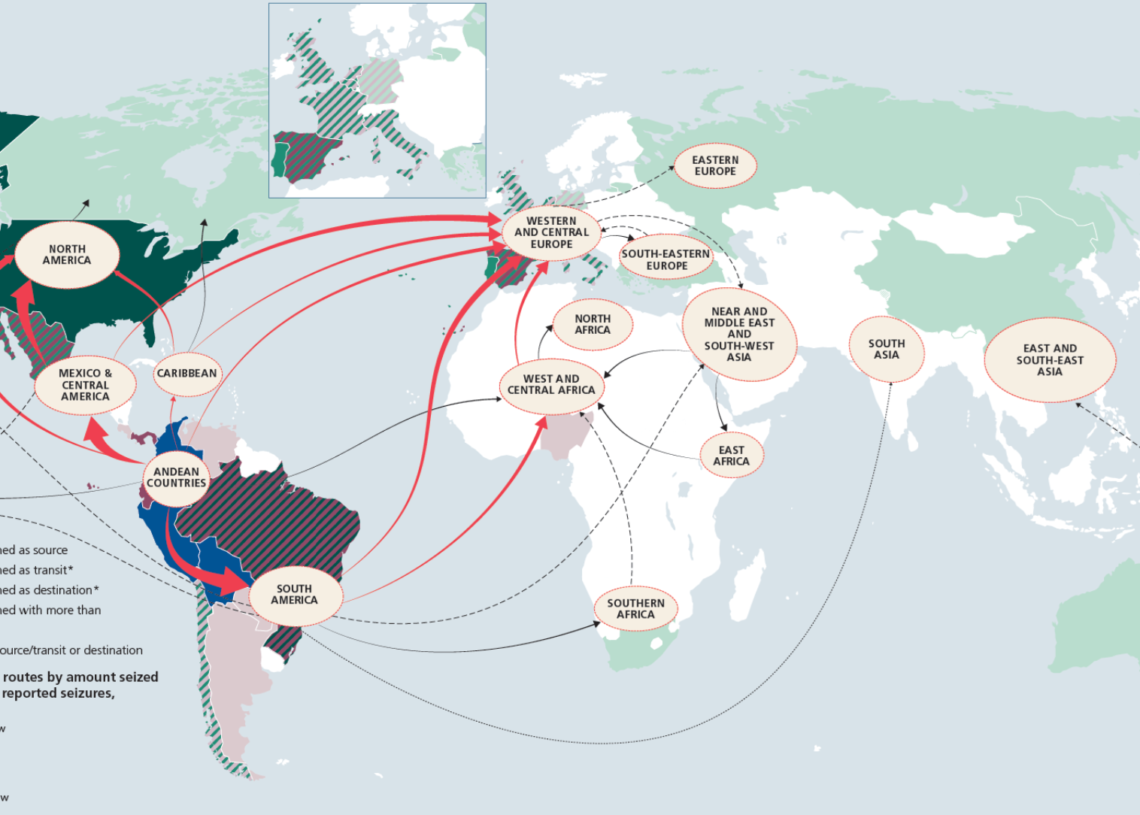Turkey has become an emerging route for large-scale cocaine trafficking, an unprecedented development, and it is alleged that a politically connected, powerful new player may have appeared on the scene to move large quantities of the drug through Turkish seaports.
The spotlight turned on Turkey in June 2020 when Colombia’s narcotics police seized almost five tons of cocaine. The drug was in two containers that were to travel by sea from the port of Buenaventura to Turkey and had a street value of $265 million in the illegal market.
Carlos Holmes Trujillo, the late Colombian minister of Defense, announced on his official Twitter account that 4.9 tons of cocaine had been seized by Colombian narcotics units.
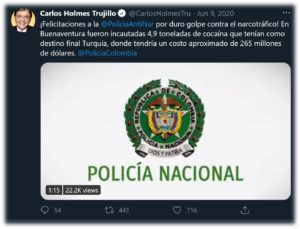
The anti-narcotics director, General Luis Ramírez, said when the crumb rubber cargo was being inspected, a dog detected the cocaine, which was camouflaged in 1,733 white tarps weighing 30 kilograms each, for a total of 4,928 kilos.
Preliminary investigations indicated that the drug was intended to be transported along the Colombian Pacific coast to Central America and later to Turkey. An approximate value of $265 million was estimated in the European market, meaning a tremendous boost to the finances of the illegal organizations that tried to traffic the drug, Ramírez added.
The Columbian Defense Ministry officially announced that the seized cocaine was bound for Turkey. This information by itself had important implications since Turkey had never been a transit or destination country for cocaine.
There were no detainees in the operation; however, an investigation was opened with the support of the Attorney General’s Office to determine the owners of the drugs. According to the Ministry of Defense, this was the largest maritime cocaine shipment that had been seized in months.
“Five tons of cocaine is an unbelievably large quantity for Turkey both as a destination and a transit country. The largest seizure of cocaine we had in Turkey had never exceeded couple of hundred of kilograms,” a former narcotics police superintendent who wanted to remain anonymous for safety reasons told Nordic Monitor.
Illegal drugs travel by various ways and means under the protection of criminal organizations, with cocaine coming primarily from Latin American countries such as Bolivia, Peru and Colombia. UNODC statistics show that cocaine, in general, travels to Europe by ship or air, perhaps via the US or Africa.
“Without a market that is ready for distribution and consumption, without all the pieces in place, and without all necessary connections – domestic and foreign – established, no drug lord in his right mind would attempt to bring in such a large quantity to Turkey,” the police superintendent said.
Turkey had never been mentioned in the UNODC’s global cocaine trafficking routes until recently. Even then, the route involving Turkey has remained small with negligible amounts of cocaine seized compared to other main routes.
“There must be something that triggered a change in the dynamics of the system, or there possibly is a new and strong player that wants to have his own share within the established system,” the police superintendent warned, suggesting that a new scheme with a new player must have strong political cover in Turkey to dare moving such a large quantity through the country.
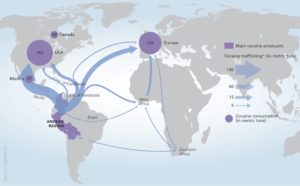
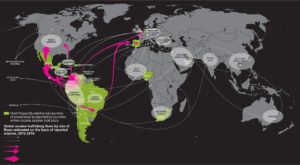
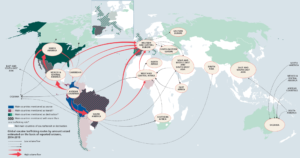
Turkey had strengthened its interdiction capacity in the two decades before 2013 thanks to policies on capacity building measures and attracting qualified staff, especially in the police force.
Turkey had consistently been ranked among the countries making the largest number of illegal drug seizures, with its law enforcement coming in second only after Iran in the highest number of illegal drug seizures annually; in some years, the number of Turkish seizures had exceeded those of Iran.
“With the purge of capable officers and specialists from law enforcement, Turkey has considerably reduced its interdiction capacity, paving the way for the rule of corrupt bureaucrats,” the police superintendent noted.
Under the pretense of investigating possible plots against the government, the government of Recep Tayyip Erdoğan dismissed and locked up thousands, including many prosecutors, judges and police officers involved in the investigation of corruption, radical groups and drug traffickers.
A series of corruption investigations that were made public in December 2013 had implicated then-Prime Minister Erdoğan, his family members and inner circle. Dismissing the investigations as a coup attempt by the Gülen movement and a conspiracy against his government, Erdoğan purged veteran police chiefs and replaced them with cronies who have criminal records and links to organized crime syndicates.
The narcotics department was dealt a huge blow as well. Erdoğan brought in Süleyman Soylu, who was implicated in a drug trafficking ring, as interior minister. A cooperation scheme with the US Drug Enforcement Administration (DEA) took a serious hit after Turkey arrested and jailed Metin Topuz, a long-time translator at the US Consulate General in Istanbul later an assistant with the DEA, and helped built a sham case to convict him on fabricated charges of terrorism ın June 2020. The pro-government media ran smear campaigns against DEA agents who were vilified in what appeared to be a government-run campaign to target US officials.
Source: Nordic Monitor
